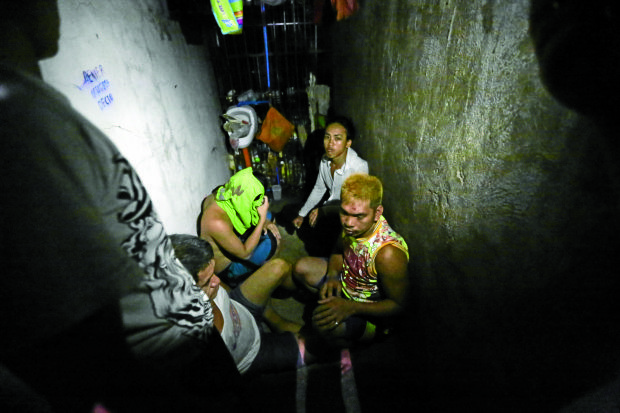The Philippines’ police chief has defended the detention of a dozen people inside a closet-sized secret cell in a case that raised further alarm about abuses under President Rodrigo Duterte’s deadly war on drugs.
The government’s human rights commission discovered a dozen men and women packed into the tiny cell behind a wooden cabinet during an unannounced visit to a police station in a Manila slum neighborhood on Thursday.
READ: Inside secret cell: ‘You’re like pigs’
The resulting outcry saw officers suspended and an official inquiry launched, but on late Friday national police chief Ronald “Bato” Dela Rosa visited the police station and defended his men’s actions.
“As long as the prisoners were not tortured or extorted, it’s okay with me,” he told reporters.
The detainees said they had been held for about a week after being arrested on allegations of drug use or trafficking and that police had demanded hefty payments in exchange for their freedom.
Dela Rosa rejected the allegations and accused the rights commission, an independent government body, of plotting to embarrass Duterte’s government.
The scandal came to light as Duterte hosted fellow leaders of the Association of Southeast Asian Nations at their annual meeting.
READ: Duterte vows to investigate Manila secret cell
Manila police chief Oscar Albayalde has conceded that congested detention facilities are widespread.
Duterte won last year’s presidential election on a pledge to kill tens of thousands of criminals.
Police have since reported killing 2,724 people as part of Duterte’s anti-drug campaign, although authorities insist the shootings have been in self-defense.
Many thousands of others have been killed by shadowy vigilantes, according to rights groups.
International rights monitor Human Rights Watch on Saturday called on the Philippines to free all “unlawfully detained” suspects and abolish unofficial police lock-up cells.
“Secret jails may just be one more form of police criminality that has multiplied during the drug war,” the group’s deputy Asia director Phelim Kine said in a statement.


